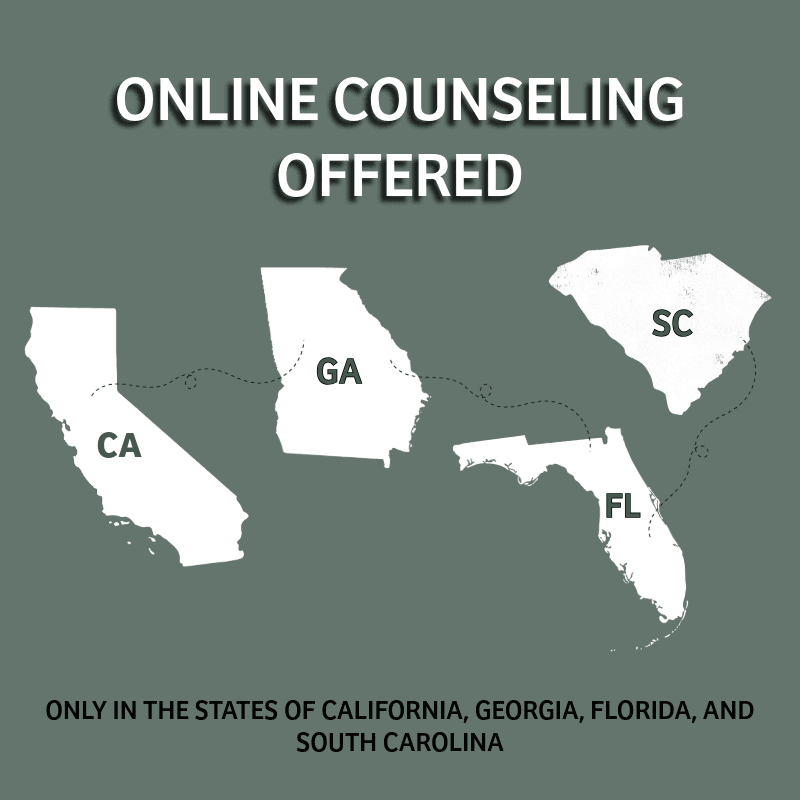While shopping for the right counselor, it is important to assess their education, licensure, and expertise. We have broken down for you how to translate a counselor's profile.
Counselor vs. Coach
This is a very important point, coaching and counselors are very different. Anyone can be a coach, it does not require an education, training, or licensure. Tomorrow I could announce that I am a health coach and start charging you to help you with your health (and no one could stop me!) Counselors have many requirements which creates consistency and reliability in the field
1) A master’s degree in counseling (that is a min of 6 years of college)
2) Completed an un-paid 1-year internship practicing counseling
3) They are supervised for 2-3 years after they graduate by a seasoned counselo
4) In addition, they have to stay on top of their education to maintain their license.
If someone calls themselves a counselor without all that completed, they can be in big trouble. I am not saying that coaches are not beneficial or helpful. It is just good to know the difference between a consultation with a coach vs a therapy session with a counselor.
Education and Experience:
After graduating with a master's degree, counselors go through multiple stages as they gain experience. You may see them use one of these terms in their bio:
**License eligible: I just graduated and I am working to get my associates and I do not have initials behind my name.
**Associate licensed: I recently graduated and I am gaining experience while being supervised. I have an "A" in my initials, ex. LAMFT, LAPC, APC
**Fully licensed: I have experience and I have been practicing a while. I have an "L" prior to all my letters, ex. LMFT or LPC, LCSW
**Fully licensed and I am a supervisor: I am very experienced and I train new counselors. I mention that I am a supervisor in my bio.
Licensure
Then there is which type of license they have. Many do not know the difference, here is an outline of what those initials mean at the end of their name.
LMFT- Licensed Marriage and Family Therapist- I have either a masters degree or a PhD. I am trained to work with the whole family, couples, siblings, individuals, and children.
LPC- Licensed Professional Counselor- I have either a masters degree or a PhD. I am trained to work with individuals and groups. There are more of me in GA than any other counselor type.
LCSW- Licensed Clinical Social Worker- I have a masters degree or a PhD. I am trained to offer counseling, help with community resources, and to work with core agencies.
PsyD, or PhD- Psychologist- (often confused for Psychiatrists and counselors) I have a PHD and I am trained to be both a counselor and to offer psychological testing.
MD- Psychiatrist- I am a doctor, I went to medical school, and I prescribe mental health medications. I rarely do counseling.
Speciality:
To become "specialized" in a certain population, such as couples, eating disorder, or play therapy, a counselor must complete many trainings and supervision post graduation. Ask about this when you talk to your counselor the first time.
After checking that they went to school and have a license now see if they have experience in what you are needing. One does not go to a dentist with a broken leg. If a counselor lists that they work with everything in their bio, it is a red flag. After graduation a counselor knows the basics of being a counselor but is not trained in any one specialty such as couples counseling, eating disorders, or OCD.
Comfort with your Counselor
A question to ask yourself after talking on the phone with a potential counselor is: How do I feel after talking to them? Do you feel understood? Cared About? Annoyed? Rushed? Valued? Listen to your gut.
Summary
1) Check that the counselor has a master’s degree, and a license. Match the level of experience you feel you need. Be mindful that the cost will be based on their experience as well
2) Prior to your first appointment, ask your potential counselor what theory model they use, how much training they have in it, and what % of their clients they use that theory with
3) Share a short version of your story with them on the phone. After you have talked, ask yourself how do you feel after talking to them.
We are happy to help you in your search for a counselor! Schedule a time to talk to one of our counselors. We will help you determine what kind of counselor you need, and who can be a good fit. If we are not the right fit, we are happy to find someone else that is!
Click Here to talk to one of our counselors
Click Here to see our counselor's bios.





